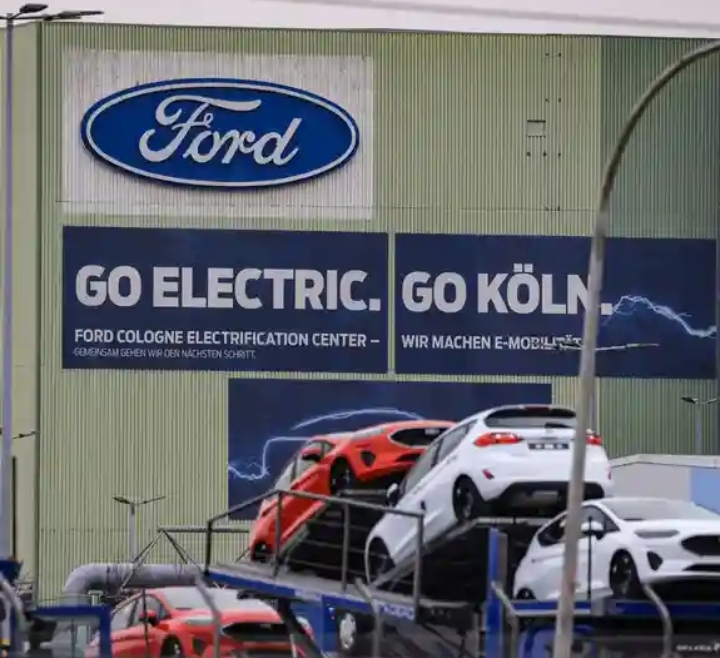Ford plans to cut the majority of the 4,000 jobs in Germany, with approximately 2,900 layoffs expected by 2027. The US automaker has called on Berlin to establish a "clear policy agenda" to support the adoption of electric vehicles, as the industry faces a significant slump in sales.
Ford Plans to Cut Thousands of Jobs in Europe by 2027


US automotive giant Ford has announced plans to eliminate 4,000 jobs across Europe by 2027, citing substantial financial losses in recent years.
On Wednesday, the carmaker revealed it would reduce its European workforce by 14%, including approximately 2,900 job cuts in Germany by the end of 2027. The UK is set to lose 800 jobs, while an additional 300 positions will be eliminated in other European Union nations.
Ford emphasized the challenges facing Europe’s automotive industry, including "significant competitive and economic headwinds" and a "misalignment between CO2 regulations and consumer demand for electrified vehicles." The company stated these issues necessitate transformative measures.
Dave Johnston, Ford’s European vice president for transformation and partnerships, highlighted the importance of the decision, saying it was "critical to take difficult but decisive action to ensure Ford's future competitiveness in Europe."
In addition to job cuts, Ford plans to reduce working hours at its plant in Cologne, Germany, which employs about 11,500 people. The company will also scale back production of the Capri and Explorer electric vehicles produced there. These changes are expected to affect one in four jobs at the Cologne facility, with Ford committing to work in consultation with labor representatives throughout the process.
Ford noted the "significant disruption" affecting the global auto industry as it transitions to electrified mobility. Western automakers face mounting challenges, including the looming threat of billions in fines if they fail to meet new EU carbon emission regulations set to take effect next year. Competition from Chinese manufacturers offering lower-priced electric vehicles has further complicated the situation.
Adding to the difficulties, the German government reduced subsidies for electric vehicles (EVs) in December of last year to address budget constraints. Analysts have reported a 28.6% drop in EV sales in Germany during the first nine months of this year.
In response, Ford has urged the German government to improve conditions for EV sales. John Lawler, Ford’s chief financial officer, called for "an unmistakable, clear policy agenda" to support electric mobility, including public investment in charging infrastructure, meaningful incentives, and increased flexibility in meeting CO2 compliance targets.
Marcus Wassenberg, Ford’s managing director for Germany, linked the cuts to broader changes in the auto industry, pointing to high labor and energy costs in Germany. The country’s economy is heavily reliant on its premium car brands.
The announcement follows similar news from Germany’s Volkswagen, which is also preparing to cut thousands of jobs at its domestic plants.

 বাংলা
বাংলা  Spanish
Spanish  Arabic
Arabic  French
French  Chinese
Chinese 
